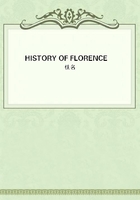
第85章
The Florentines being informed of these disasters, found they must have recourse to those remedies which upon former occasions had often proved useful. Knowing that with mercenary soldiers, when force is insufficient, corruption commonly prevails, they offered the count a large sum of money on condition that he should quit the city, and give it up to them. The count finding that no more money was to be had from Lucca, resolved to take it of those who had it to dispense, and agreed with the Florentines, not to give them Lucca, which for decency he could not consent to, but to withdraw his troops, and abandon it, on condition of receiving fifty thousand ducats; and having made this agreement, to induce the Lucchese to excuse him to the duke, he consented that they should expel their tyrant.
Antonio del Rosso, as we remarked above, was Siennese ambassador at Lucca, and with the authority of the count he contrived the ruin of Pagolo Guinigi. The heads of the conspiracy were Pierro Cennami and Giovanni da Chivizzano. The count resided upon the Serchio, at a short distance from the city, and with him was Lanzilao, the son of Pagolo.
The conspirators, about forty in number, went armed at night in search of Pagolo, who, on hearing the noise they made, came toward them quite astonished, and demanded the cause of their visit; to which Piero Cennami replied, that they had long been governed by him, and led about against the enemy, to die either by hunger or the sword, but were resolved to govern themselves for the future, and demanded the keys of the city and the treasure. Pagolo said the treasure was consumed, but the keys and himself were in their power; he only begged that as his command had begun and continued without bloodshed, it might conclude in the same manner. Count Francesco conducted Pagolo and his son to the duke, and they afterward died in prison.
The departure of the count having delivered Lucca from her tyrant, and the Florentines from their fear of his soldiery, the former prepared for her defense, and the latter resumed the siege. They appointed the count of Urbino to conduct their forces, and he pressed the Lucchese so closely, that they were again compelled to ask the assistance of the duke, who dispatched Niccolo Piccinino, under the same pretense as he previously sent Count Francesco. The Florentine forces met him on his approach to Lucca, and at the passage of the Serchio a battle ensued, in which they were routed, the commissary with a few of his men escaping to Pisa. This defeat filled the Florentines with dismay, and as the enterprise had been undertaken with the entire approbation of the great body of the people, they did not know whom to find fault with, and therefore railed against those who had been appointed to the management of the war, reviving the charges made against Rinaldo. They were, however, more severe against Giovanni Guicciardini than any other, declaring that if he had wished, he might have put a period to the war at the departure of Count Francesco, but that he had been bribed with money, for he had sent home a large sum, naming the party who had been intrusted to bring it, and the persons to whom it had been delivered. These complaints and accusations were carried to so great a length that the captain of the people, induced by the public voice, and pressed by the party opposed to the war, summoned him to trial. Giovanni appeared, though full of indignation. However his friends, from regard to their own character, adopted such a course with the Capitano as induced him to abandon the inquiry.
After this victory, the Lucchese not only recovered the places that had belonged to them, but occupied all the country of Pisa except Beintina, Calcinaja, Livorno, and Librafatta; and, had not a conspiracy been discovered that was formed in Pisa, they would have secured that city also. The Florentines again prepared for battle, and appointed Micheletto, a pupil of Sforza, to be their leader. The duke, on the other hand, followed up this victory, and that he might bring a greater power against the Florentines, induced the Genoese, the Siennese, and the governor of Piombino, to enter into a league for the defense of Lucca, and to engage Niccolo Piccinino to conduct their forces. Having by this step declared his design, the Venetians and the Florentines renewed their league, and the war was carried on openly in Tuscany and Lombardy, in each of which several battles were fought with variety of fortune. At length, both sides being wearied out, they came to terms for the cessation of hostilities, in May, 1433. By this arrangement the Florentines, Lucchese, and Siennese, who had each occupied many fortresses belonging to the others, gave them all up, and each party resumed its original possessions.
CHAPTER VI
Cosmo de' Medici, his character and mode of proceedings--The greatness of Cosmo excites the jealousy of the citizens--The opinion of Niccolo da Uzzano--Scandalous divisions of the Florentines--Death of Niccolo da Uzzano--Bernardo Guadagni, Gonfalonier, adopts measures against Cosmo--Cosmo arrested in the palace--He is apprehensive of attempts against his life.